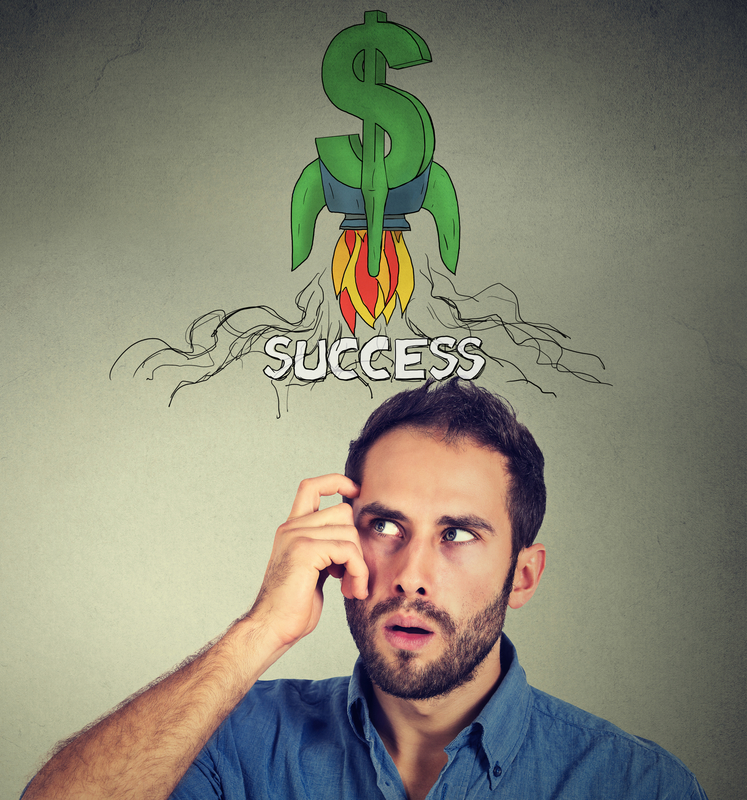You’ve heard of the Law of Attraction.

If you’re like most marketers, you’ve also belittled the Law of Attraction, too.
After all, it’s just new age hocus pocus malarkey, right?
You can’t sit on your duff and attract a new television to yourself.
(Well, actually you can, with the help of your credit card, Amazon and the mail delivery system, but that’s not what we’re talking about, is it?)
I’m going to prove to you that the Law of Attraction is indeed very real.
And I’m going to do it by simply having YOU prove it to YOURSELF once and for all.
Are you ready?
The first thing to know is that the universe is already delivering to you exactly what you’ve asked for.
Imagine a line of self-driving delivery trucks coming down your street. These trucks cannot be stopped – they will make their deliveries to you whether you want them to or not. And these trucks will never stop coming, either, for as long as you are alive.
What you can change, however, is WHAT they deliver to you.
If your thoughts are on your lack of sales, lack of subscribers, lack of JV partners, lack of affiliates, your website crashing and so forth – that’s exactly what you’ll experience.
However, if you think of all the new subscribers you’re attracting through your marketing methods, how well your website is converting thanks to your testing, how easily you attract affiliates and JV’s – then that’s what you’ll get.
“But I already do think about the things I want!”
I agree, you do. But maybe not as much as you think about the things you DON’T want.
And it’s actually a bit more complicated than that, too.
You see, if you only think consciously about what you want, but you don’t program your subconscious mind as well, then you still won’t get what you ordered from those trucks rolling down your street.
This is where it gets confusing, doesn’t it? What is the subconscious? And how do you program it to work with you, instead of fighting what you want?
You might think of your conscious mind as the part of the iceberg that’s above water – the part you’re familiar with. The subconscious mind is the much larger portion of the iceberg that’s beneath the surface – and also the part that reacts to currents and ‘steers’ the iceberg in the direction it winds up going.
The trick is to program the subconscious mind to take you where you want to go, and to bring into your life the things and people you want in your life.
Program your subconscious correctly, and everything is easier.
Program it incorrectly, and you feel like you are continuously attempting to swim upstream against a diabolically strong current that inevitably prevents you from getting where you want to go.
It’s important to note here that your subconscious mind is already being programmed all the time – by your thoughts, the media, movies and television, advertising, your friends and family and so forth.
Isn’t it about time YOU took charge of your own programming to get the success you seek in online marketing and every other aspect of your life?
Here’s how:
Step 1: Write down exactly what you want, in full detail.
Instead of writing, “I want more affiliates,” write “I want 20 active affiliates who sell a total of 1,000 copies of my program in the next 60 days.”
Step 2: Visualize yourself already having obtained what you desire.
This is fun and something you should do several times a day or more. Play full color movies in your head of yourself already having attained your desire.
Your subconscious doesn’t know the difference between what it sees in your imagination and what it sees in the real world.
That’s why when it keeps seeing movies of you having 20 active affiliates and selling 1,000 copies of your program in 60 days, it will think this is reality and work to make it happen.
Step 3: Don’t watch or listen to anything – real or imagined – that contradicts your new belief.
If you want to sell 1,000 copies of your program, but you watch a TV series where the main character is always failing at everything he tries, this is going to sabotage your efforts. Be very careful what you watch, read and listen to.
Consider going on a complete news fast, refusing to watch or read anything negative for the next 30 days. You might be surprised at how much more positive you feel, and how much easier it is to attain goals.
That’s because you’re removing negative influences on your programming, which allows the positive influences to have their way.
Step 4: Make your own mantra or affirmation summarizing your goal.
This affirmation is going to imply you already have the outcome you seek.
Start the affirmation with either, “I have…” or “I am…”. In the case of our example, your affirmation might be, “I have 20 active affiliates who easily sell 1,000 copies of my program in 60 days.”
Make sure your affirmation is in the present tense or else your subconscious won’t understand it.
Also, don’t use a negative word, because your subconscious won’t hear it.
For example, if you say, “I do not get refund requests,” your subconscious will hear, “I do get refund requests” and it will go to work to make sure you get plenty of refund requests. Ouch.
Step 5: Create reminders.
Set a timer on your phone that goes off periodically throughout the day to remind you to say your affirmation and play your movie in your head.
See yourself already in possession of what you seek.
Step 6: Do affirmations.
Okay, if you’re squirming right now and saying, “I don’t want to!” then I understand.
You probably tried affirmations in the past and found it too boring to continue.
Here’s how to make it simple for yourself: Write out a list of affirmations that support your desired goal.
Record yourself saying these affirmations, and loop it 3 to 5 times to repeat those affirmations.
Then play this recording several times per day as you do other things.
Hint: It’s especially useful to play it as you’re falling asleep.
Step 7: Time to kick things up a notch.
You’re going to speak as though you have already attained your goal.
Yes, I mean speak to others. If that sounds a little too crazy right now, then practice speaking it out loud to yourself, Then when you’re ready, talk to friends, family, etc.
For example, in our 20 affiliates – 1,000 sales example, you’ll be saying things like, “I’ve got 20 new active affiliates who are promoting my new program like crazy. In fact, I’ve already made 1,000 sales!”
“Wait! Isn’t this lying?”
Think of it as time traveling. When you do reach this goal, you will be saying these things for real. You’re just saying them a little early, that’s all.
Now, I know you’re going to try to skip this step. Don’t. Speaking things into existence is powerful. After all, don’t gods speak entire worlds into existence? If they can do that, you can speak your goals into being as well.
Now then, once you’re doing these seven steps, just keep doing them until you reach your goal. Then repeat the entire process.
I suggest you start with a small goal that can be achieved fairly quickly and work your way up to larger goals. Realize of course that you will HAVE TO DO STUFF along the way to make your goals happen.
But here’s the magic – by using this system, things will be a lot easier. The people you need will appear when you need them.
Things that need to fall into place for you will fall into place. It feels a lot like magic, but it’s not. It’s simply a matter of energy and focus.
You are focusing your energy to send out a call into the world for what you need, and the world cannot help but answer.
Remember that long line of trucks making deliveries to your home? Now you can determine what gets delivered (and what doesn’t.)
I’ve personally used this system for years. It’s as close to having my own genie as anything real that I can imagine. I’m a true believer because I’ve seen it work time and time again, and you will be, too, once you try it.
So what have you got to lose? And more importantly, fellow online marketer, what have you got to gain?
The world needs what you have to offer. And by using this system you’ll be able to help all kinds of people while simultaneously getting everything you want, too.
Truly a win-win for everyone involved.






















